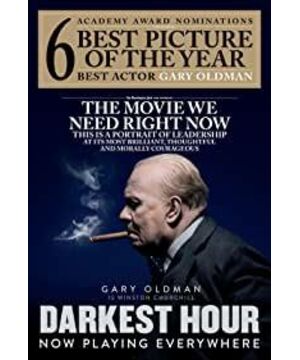Darkest Hour evaluation action
2021-11-25 08:01
"Darkest Hour" conveys that for independence and freedom, the values of never compromise with power and never negotiate peace with dictators are moving. In the historical environment at that time, no one could predict the outcome of the war. Even Winston Churchill does not have the right to take the lives of the people to make huge bets on military decisions. Therefore, Winston Churchill’s speech was resolute, brave, and exciting on the one hand. On the other hand, there was also a sense of tragic and majesty hidden behind the scenes. Winston Churchill revealed certain things in the film. Behavior often contains contradictions that make it difficult for outsiders.
"The Darkest Hour" is a metaphor for the responsibility and courage involved in every major historical moment and major choice. The film ends with a passage from Churchill: There is no ultimate success, no fatal failure, and the most important thing is the courage to move on. This kind of spirit and belief is the guarantee that human society will pass through the gloomy moments and finally usher in the light. There are no shortage of cases in British films that use celebrity biographies to promote the British tradition and modern spirit. "The Darkest Hour" is undoubtedly one of them with profound reality metaphors.
Extended Reading
-
King George VI: Winston lacks judgment.
Neville Chamberlain: He was right about Hitler.
King George VI: Well, even a stopped clock is right twice a day.
-
King George VI: How do you manage drinking during the day?
Winston Churchill: Practice.











